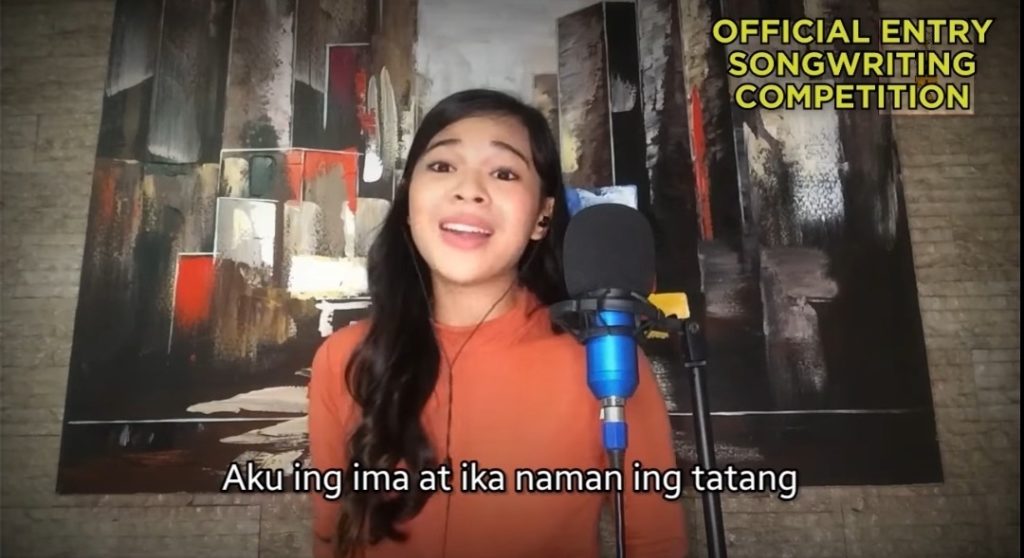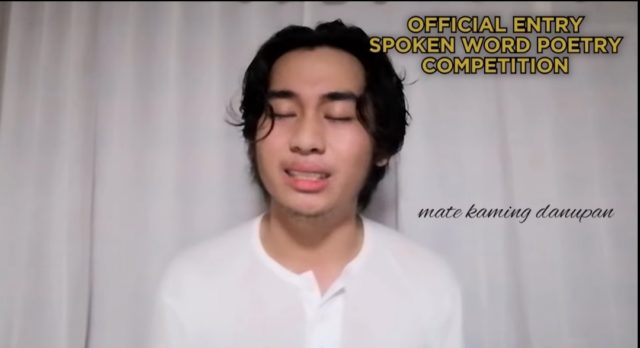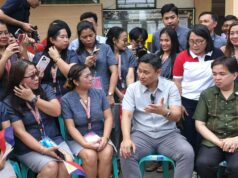The Center for Kapampangan Studies (CKS) of Holy Angel University recently achieved a milestone in its advocacy to promote Kapampangan culture when 120 young poets and songwriters joined its annual competition celebrating Buwan ng Wika.
“It was a surprise on many levels,” CKS Director Robby Tantingco said. “First, we didn’t expect so many young Kapampangans to still be interested in Kapampangan poetry and Kapampangan music. Second, we didn’t expect them to still be able to write and compose in Kapampangan. And third, we didn’t expect them to be this good!”

The winners in the poetry category are “Ulu” by Gerald Chu (first prize), “Quing Maskup a Dalan” by Errice Pabalan (2nd prize) and “Gapus” by Joshua Valencia (3rd prize). In the songwriting category, the winners are “Aliwa Ka” by Jay Gopez (first prize), “Regalu ning Guinu” by Mary Jane Babadilla (2nd prize), and “Milabas” by Nilo Nucup and Don Mauro Gomez, with the best performance award going to Mica Navarro (“Milasbas”).
Tantingco said that the reason cultural advocacy groups have mushroomed in Pampanga was precisely to address the perception that the Kapampangan language was dying among the youth—a phenomenon that started when government instituted Filipino as the national language at the expense of regional languages.
He attributed the unexpected big number of contestants to the competition’s chosen theme, medium and prizes, as well as to the relative ease of performing in the privacy of home and videotaping the performance with a phone camera, and then submitting the entry online instead of the usual stage performance in front of a live audience.
“Online is our young people’s natural habitat,” Tantingco said. “They are very good at it, and very comfortable in it, more than us old folks.”
The theme in the poetry category is their insights and feelings about the pandemic, Tantingco said, and it turned out that young people are not passive victims but active survivors with strong opinions about how government is handling the situation, how it has impacted their lifestyles, and what role religion plays.
The genre chosen for the poetry category is is the spoken word poetry, which is free verse, untraditional, and delivered with the force of a strong conviction about the subject matter.
In the songwriting category, the theme was children’s song, i.e., anything from nursery rhyme and lullaby to songs of advice and inspiration.
When CKS uploaded all 120 entries on Facebook in the last week of the Buwan ng Wika, social media was flooded with Kapampangan poems and songs as each entry generated thousands of likes and shares, some up to 70,000.
The top prize in the poetry category, called the Villanueva Award, was donated by Atty. Stephanie G. Somera in honor of both her mother, Dr. Francisca V. Gomez, a pioneer student of Holy Angel University, and grandfather, Atty. Francisco Villanueva, a Kapampangan poet who died in the influenza pandemic of 1918.
All the prizes in the songwriting category, on the other hand, were donated by HAU alumnus Oscar Balajadia a.k.a. Papa Osmubal, who is a Macau-based Kapampangan poet, artist, language expert and National Book Award winner.
Serving as judges in the poetry category are filmmaker/writer Jason Paul Laxamana, poet laureate Tec Sanchez Tolosa and spoken-word poet Gerone Jan Baladhay, while conductor Edwin Lumanug, artist/composer Andy Alviz and composer/author Irwin Nucum served as judges in the songwriting competition.
“Young people love the Kapampangan language,” Tantingco said. “My faith in them is renewed with this contest. What they need is more people encouraging them, supporting them and guiding them, not shaming, belittling and mocking them.”





